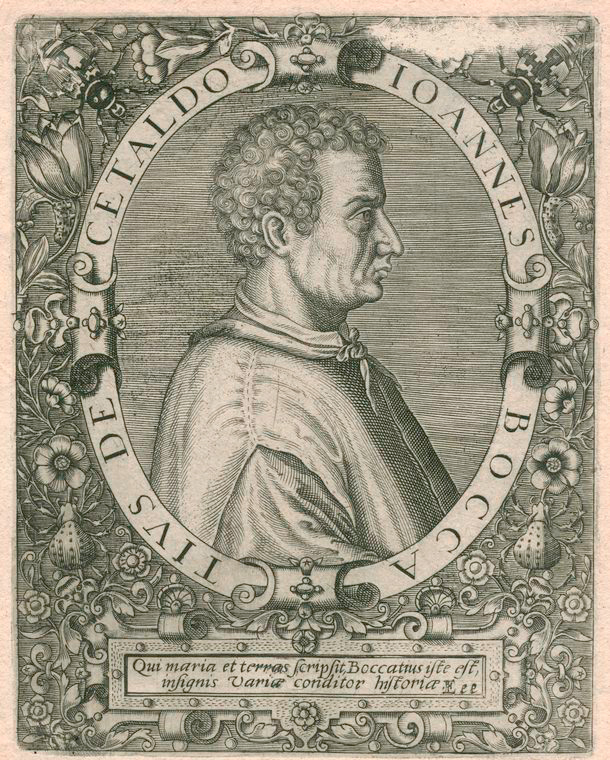The Decameron: Count by Ten!
Ten friends (seven women and three men) get together, hide away from the Black Death that was killing the population of Florence at the time, and start telling stories to each other. They spend ten days together and the stories told total 100 in number. So far so good! We are talking about the 14th century, though. Not the 21st. That's seven centuries ago. How do you write such a book in the 14th century?
Well, Giovanni Boccaccio was an enlightened and liberal mind, a good companion, and a merry man. He had a good heart and remained a harmonious nature to the end. In the beginning, however, Boccaccio's life was not very pleasant. He is believed to have been born in Paris as the illegitimate son of a Florentine merchant. His father was a nasty piece of work — a greedy and treacherous person. His mother died soon after giving birth. Throughout his live, Giovani had many turns and difficulties; at fifty years old he even cut off ties with the secular world and became a monk, to live only in humble religious piety. But in his creative years, being "Parisian," Boccaccio's artistic instincts followed his mighty youth and seething vitality, wit and imagination. The Gallic clarity of spirit and propensity for eloquence are indisputable. In Boccaccio's prose there is something colorful as a narration and artistic as a performance. In many ways, Boccaccio looks more like a Frenchman than an Italian.
In the professional field of literature Boccaccio was influenced mainly by Francesco Petrarca. Petrarca, however, read The Decameron much later after its publishing —some 20 years later, actually (if I'm not mistaken), and didn't like it that much. Well, go figure... The thing is that Boccaccio is not a medieval author. Not the type, you see: he did not recycle the Latin in The Decameron. He wrote it in Italian. That, by the way, is a big, huge difference. His characters are far from the classic approach—they are extraordinarily fresh, colorful and Epicurean vibrant. Under the dark vault of the plague they play the dance of life—shameless and multifaceted, trivial and noble. It's a kaleidoscope, it's a trip! Sometimes it's an obscene journey as well (the aha! factor? Oh, I wouldn't know!).

At the time of its publishing, The Decameron caused a "revolution" with its bold content and unusual interpretation of themes. The Italian critic and literary historian Francesco de Sanctis claimed that it came quite unexpectedly—it fell like "thunder from a clear sky." Boccaccio mercilessly strikes at everything "sacred" of his era. The manners of the time are caricatured and bombarded with cheerfulness and disrespectful laughter. It was a pure Renaissance work, and it's great fun to read it!
Read E-Books with SimplyE
 With your library card, it's easier than ever to choose from more than 300,000 e-books on SimplyE, The New York Public Library's free e-reader app. Gain access to digital resources for all ages, including e-books, audiobooks, databases, and more.
With your library card, it's easier than ever to choose from more than 300,000 e-books on SimplyE, The New York Public Library's free e-reader app. Gain access to digital resources for all ages, including e-books, audiobooks, databases, and more.
If you don’t have an NYPL library card, New York State residents can apply for a digital card online or through SimplyE (available on the App Store or Google Play).
Need more help? Read our guide to using SimplyE.
